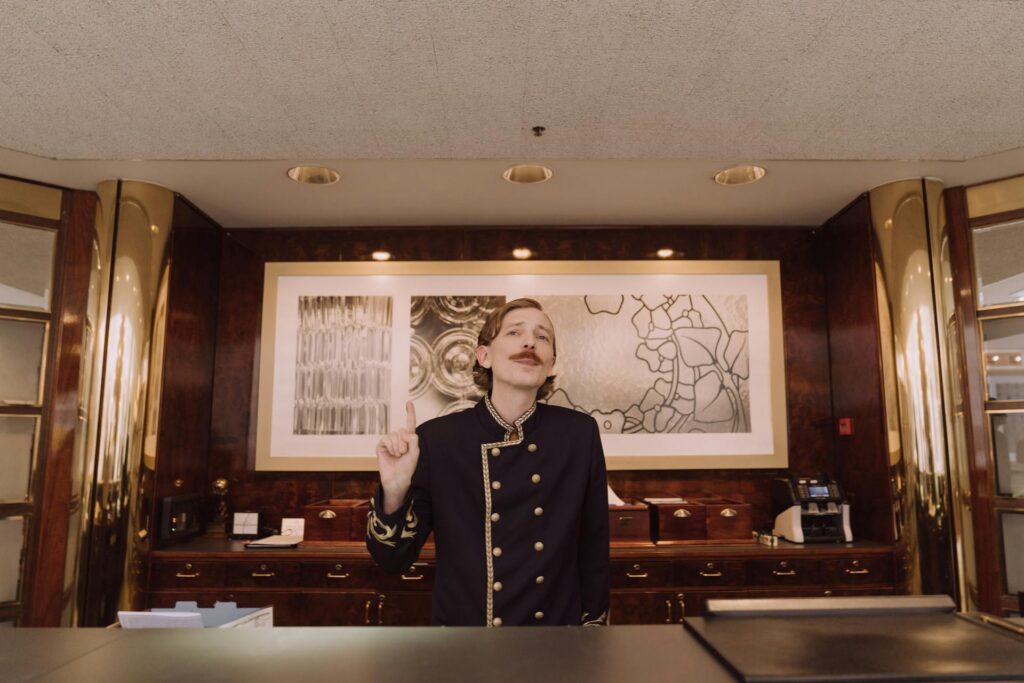From bustling street-food vendors to Michelin-starred establishments, all the way to five star hotel restaurants with room service, the fundamentals of exceptional service remain remarkably consistent. While the settings may differ dramatically, the core elements that delight customers and keep them coming back are universal. Here are the 7 essential ingredients that combine to create truly memorable service experiences.
Genuine Warmth & Recognition
The moment a guest walks through your doors, they should feel genuinely welcomed. This isn’t about rehearsed greetings or robotic smiles—it’s about authentic human connection. Whether it’s remembering a regular customer’s usual order at a coffee shop or acknowledging a first-time visitor’s special occasion at a fine dining venue, personal recognition creates an immediate emotional bond.
What to say: “Lovely to see you again, Mrs Chen. Your usual table by the window is ready.”
What not to say: “Welcome to [insert restaurant name]. Today’s special is…” whilst staring at your phone



Anticipatory Service That Never Intrudes
The finest service operates like a well-orchestrated dance, with staff anticipating guest needs before they arise whilst remaining beautifully unobtrusive. This requires keen observation and perfect timing—knowing when to top up water, clear plates, or offer assistance without interrupting conversations or meaningful moments.
What to say: “I notice you enjoy spicy food. Our chef has just prepared a special Szechuan dish that might interest you.”
What not to say: “ARE YOU STILL WORKING ON THAT?” shouted across the table mid-conversation
Consistent Excellence Through Systems
Behind every smooth service operation lies a robust framework of systems and processes. Modern hospitality demands both time-tested protocols and innovative solutions. Mapal’s feedback and engagement solution is a core example of this, enabling restaurants to maintain consistent service standards and improve productivity, all whilst gathering valuable customer insights across multiple locations.
What to say: “I’ve noted your preferences in our system to ensure we can better serve you next time.”
What not to say: “Sorry, the regular manager isn’t here, so I’m not sure how we usually handle this…”
Knowledge As A Cornerstone
Whether explaining the provenance of ingredients in a casual eatery or discussing wine pairings in a high-end restaurant, staff knowledge builds trust and enhances the dining experience. This expertise should extend beyond the menu to include awareness of dietary requirements, allergens, and the ability to make informed recommendations.
What to say: “The lamb is sourced from the Yorkshire Dales and pairs beautifully with our Rioja Reserva.”
What not to say: “Um, I think it’s like, kind of spicy? Let me ask the kitchen… again.”


Recovery With Grace
Even in the finest establishments, things occasionally go wrong. The true measure of service excellence lies not in perfection, but in how gracefully issues are resolved. Swift acknowledgement, sincere apology, and proper compensation aren’t just about fixing problems—they’re opportunities to demonstrate commitment to guest satisfaction.
What to say: “I sincerely apologise for the delay. Let me sort this out immediately and bring you some complimentary nibbles while you wait.”
What not to say: “The kitchen’s really backed up tonight. Not my fault though—I just work here!”


Cultural Awareness & Adaptability
Today’s dining scene serves an increasingly diverse clientele. Outstanding service requires cultural competency and the flexibility to adapt to different expectations, customs, and preferences. This might mean understanding cultural dietary requirements in a fast-food chain or recognising appropriate formalities in fine dining.
What to say: “Would you prefer chopsticks or western cutlery? We’re happy to provide either.”
What not to say: “Oh, you don’t eat that? But it’s just a tiny bit of [ingredient]—surely it won’t matter?”
The Art Of Farewell
The end of a dining experience is as crucial as its beginning. A warm farewell, genuine thanks, and perhaps a small gesture of appreciation can transform a satisfactory meal into a memorable experience that guests will want to repeat—and recommend to others.
What to say: “Thank you for dining with us. Please enjoy these house-made chocolates for the journey home.”
What not to say: “Yeah, bye then!” whilst already turning away to clean tables

The Bottom Line
These seven elements transcend price points and service styles, creating the foundation for exceptional hospitality. When combined thoughtfully and executed consistently, they transform ordinary transactions into extraordinary experiences that build loyalty and drive success in an increasingly competitive industry.
The most successful establishments, regardless of their market position, recognise that these ingredients must be carefully measured and blended to create their own unique service recipe. In doing so, they don’t just serve meals—they create memories that keep guests coming back for more.





